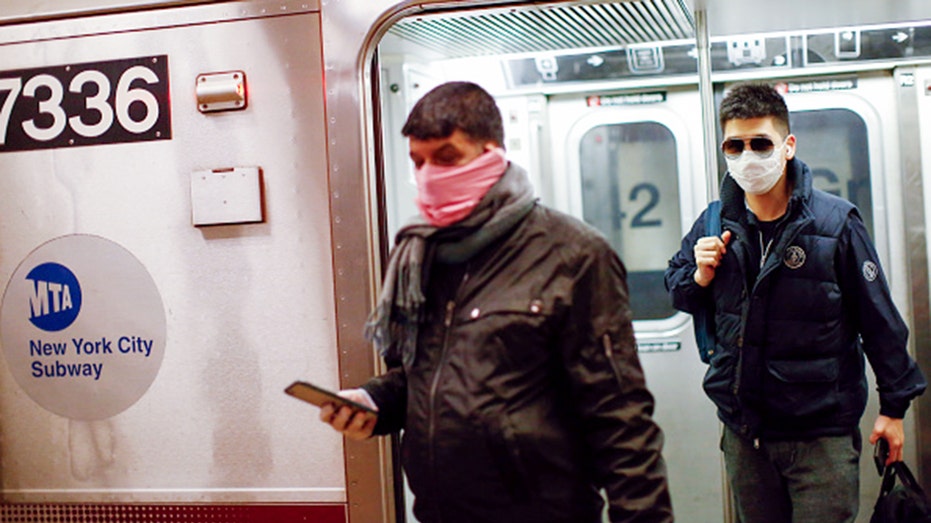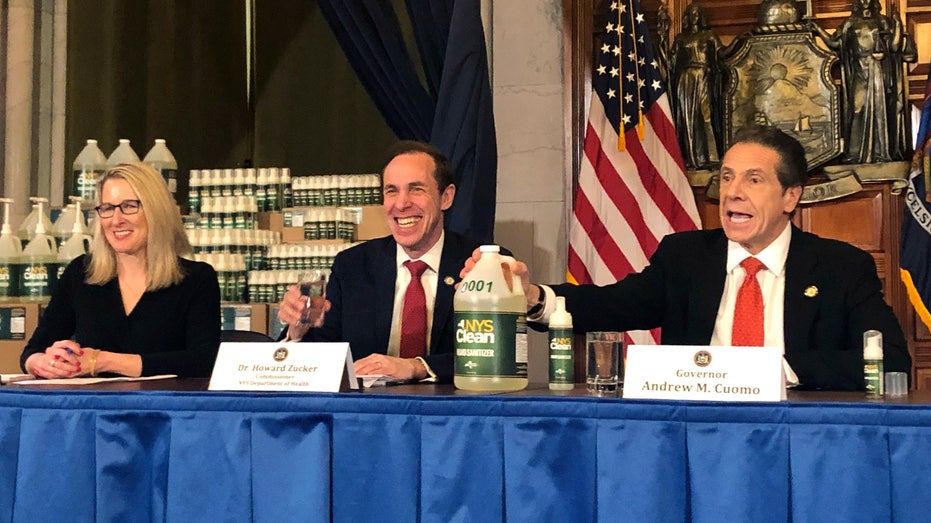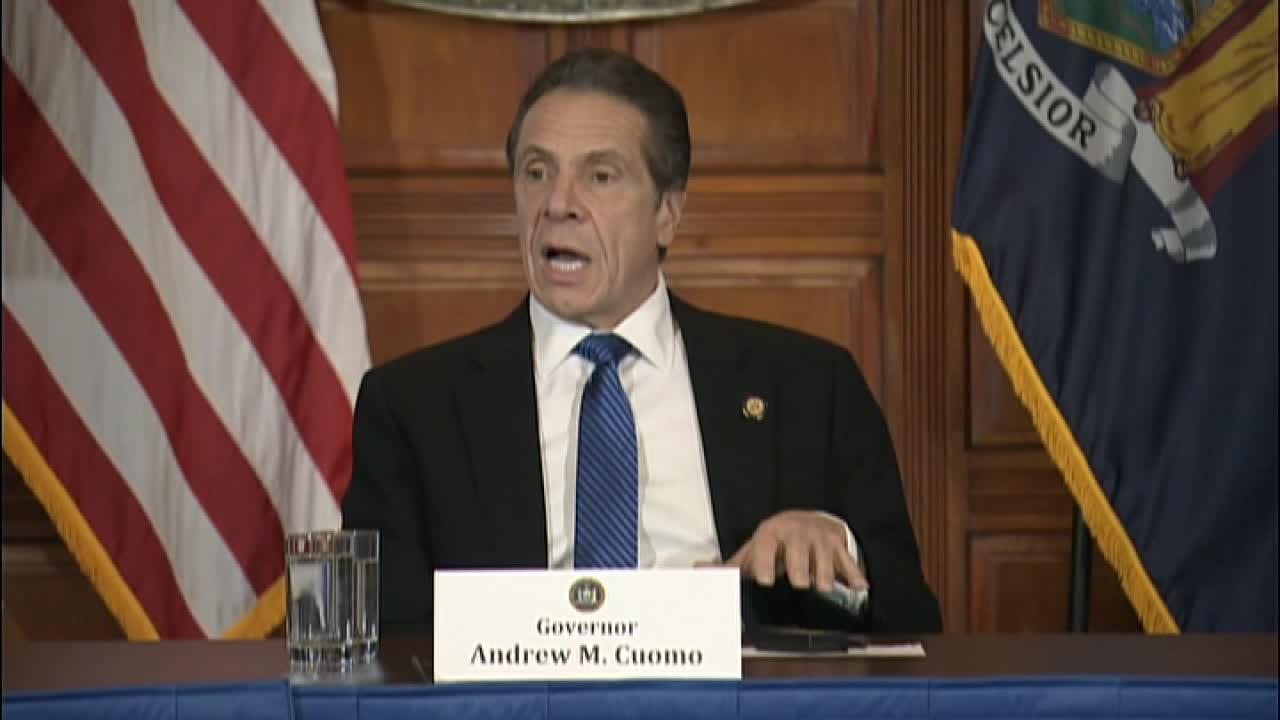Coronavirus might live longer on hard surfaces than anticipated: Cuomo
What does it mean for crowded areas like the subway?
The coronavirus that has popped up in more than 30 states may live longer on hard surfaces than health officials originally thought, New York Gov. Andrew Cuomo said at a Tuesday press conference.
"There is a debate about how long the virus can live on hard surfaces, and you have differing opinions," Cuomo said. "Now, some opinions are the virus can live on a hard surface such as stainless steel or plastic for two days or more. If that's the case, that would be a significant issue as to why it's transmitting the way it does."
ARE CHILDREN CORONAVIRUS CARRIERS?
A recent paper published in the Journal of Hospital Infection found that the virus could survive for several days, depending on temperature and surface. The longest the virus survived was nine days.
New York has confirmed 173 cases, with 36 in New York City.
Nearly 100 of those cases trace back to one of a community in the Westchester County suburb of New Rochelle connected to one of the first patients who tested positive in the state. Other commuter-rail suburbs in Connecticut and New Jersey have also reported stray cases.

Men wear face mask as they ride on the subway on March 8, 2020 in New York City. (KENA BETANCUR/AFP via Getty Images)
Government and transit officials have stressed that the virus can’t easily be transmitted by casual contact, such as sharing a subway car with someone who is infected. But they also have urged people to walk or ride a bike to work, telecommute or stagger their work hours so they don't ride at peak times. The latter strategy was also used by the city during the 1918 influenza epidemic.
Subway trains remain full during rush hours, though Metropolitan Transportation Authority officials said at a briefing Monday that anecdotal evidence suggests they have been less crowded in recent days.
“We're urging employers to let people change the times that they’re coming into work and change the times that they’re leaving work so that we can stagger people and have less crowding," interim New York City Transit head Sarah Feinberg said Monday. “I can see that happening.”
CORONAVIRUS VACCINE DEVELOPMENT COULD COST $1 BILLION
New York City Mayor Bill de Blasio said people who are ill should also stay off public transit if they can.
“When we’re all packed like sardines at rush hour, you’re really close to your fellow New Yorkers," he said. "We’d like people, if they’re sick, not even to be in that situation."
The MTA is the nation's largest transit system and operates the city’s subways and buses in addition to the Long Island Rail Road and MetroNorth rail systems stretching to the tip of Long Island and north to New Haven, Connecticut. The agency has accelerated its cleaning operations to disinfect several hundred subway and rail stations and thousands of buses, subway and train cars.

New York Gov. Andrew Cuomo, right, introduces "New York State Clean," a hand sanitizer manufactured by the state of New York in response to shortages of the alcohol- based substance, during a news conference update, Monday, March 9, 2020, in Albany,
MTA chairman and CEO Pat Foye said Monday that throughout the weekend more than 4,000 subway cars, 2,500 trains and 5,300 buses were cleaned.
“I want to assure the public that the subways remain safe, “ he said.
New York Gov. Andrew Cuomo joked last week that riders shouldn't be alarmed if they smell a strange chemical odor on the subways in the weeks ahead.
CLICK HERE TO READ MORE ON FOX BUSINESS
"It’s not bad cologne or perfume; it is bleach,” Cuomo said.
The Associated Press contributed to this report.




















